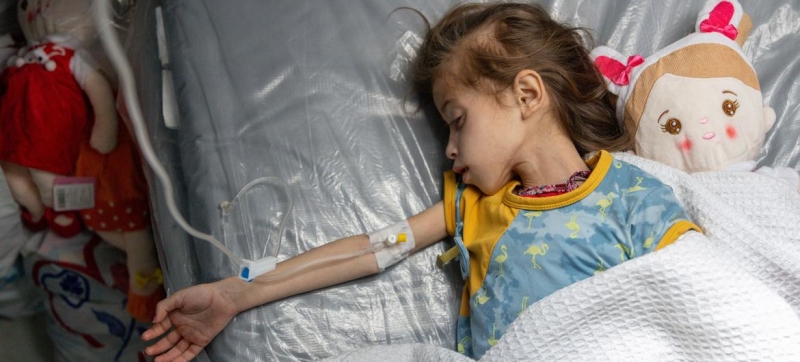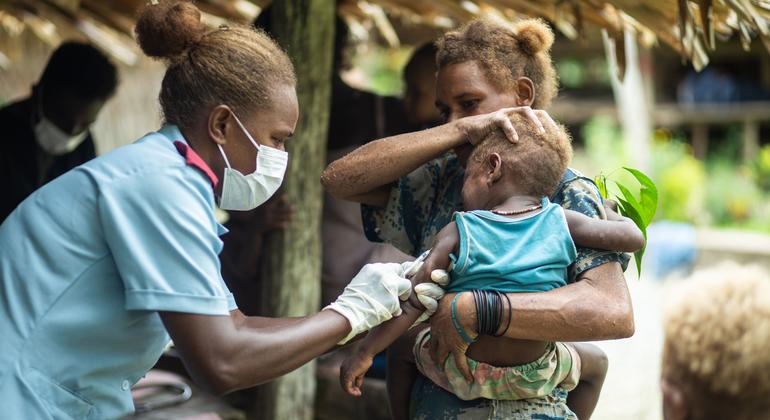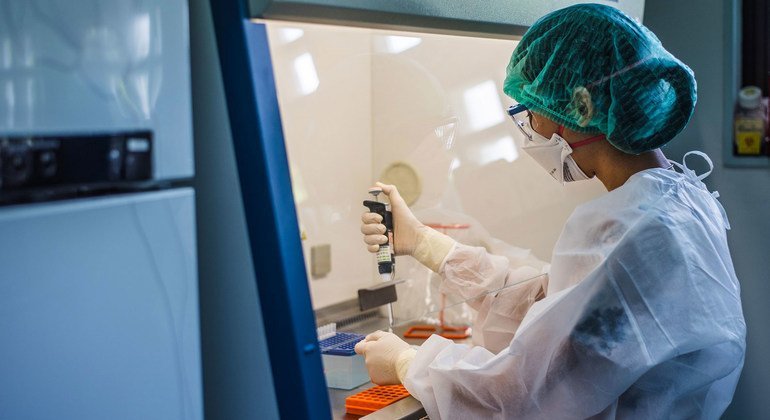
A girl with symptoms of acute malnutrition and dehydration is treated at a field hospital in southern Gaza in April 2024. What is the World Health Organization and Why is it Important? Healthcare
When plague, cholera, and yellow fever struck a newly industrialized and interconnected world in the mid-19th century, a global approach to health became imperative. In 1851, doctors, scientists, presidents, and prime ministers convened an urgent International Sanitary Conference in Paris, the forerunner of the World Health Organization, known as WHO.
The United Nations’ specialized health agency has been working to improve the health and well-being of the world’s people since 1948. WHO is supported by 194 countries, including the United States. But on Monday, Washington announced plans to leave the organization.
“WHO regrets that the United States has announced its intention to withdraw from the organization… We hope that the United States will reconsider its decision,” said WHO spokesman Tarik Jasarevic.
He stressed that WHO “plays a key role in protecting the health of everyone around the world, including Americans, by addressing the root causes of disease, helping build stronger health systems, and identifying, preventing, and responding to emergencies… including in places where other services cannot reach.”
Jens Laerke, a spokesman for the UN Office for the Coordination of Humanitarian Affairs (OCHA), noted the vital role of WHO, saying that “people are living longer, healthier and happier, largely thanks to WHO.”
Emergency response
WHO responds to crises, conflicts, disease outbreaks and climate change around the world, from Gaza to Sudan to Ukraine. Its staff deliver vaccines, medicines, first aid kits and equipment to the most dangerous and hard-to-reach places.
In 2023, WHO recorded more than 1,200 attacks on health workers, patients, hospitals and ambulances in 19 countries and territories, killing more than 700 people and injuring nearly 1,200.
WHO teams often go where others don’t, evacuating and caring for the wounded in the harshest conditions. In September 2024, for example, WHO teams helped roll out a polio vaccination campaign in war-torn, besieged Gaza.
Working in Crises
WHO experts sift through thousands of news items, including scientific papers and surveillance reports, checking for incoming signals of disease outbreaks or other public health threats, from bird flu to COVID-19.
WHO mobilizes efforts in prevention, detection and response. In conflict and crisis settings, WHO helps strengthen the capacity of hospitals to deliver a wide range of services, from delivering babies to treating injuries.
Eliminating diseases worldwide
Neglected infectious and vector-borne diseases, sexually transmitted infections, diseases transmitted from mother to child and vaccine-preventable diseases – WHO helps countries tackle them all, providing medicines and medical equipment and building and strengthening laboratory capacity to diagnose diseases.
In 2024, WHO Member States achieved a number of important achievements in addressing major global health challenges. Seven countries – Brazil, Chad, India, Jordan, Pakistan, Timor-Leste and Viet Nam – eliminated a range of diseases, including leprosy and trachoma.
Mother-to-child transmission of HIV and syphilis was eliminated in Belize, Jamaica and Saint Vincent and the Grenadines, and Namibia reached a key milestone towards eliminating mother-to-child transmission of HIV and hepatitis B.
WHO also played a key role in the eradication of smallpox in 1980 and the near eradication of polio worldwide.

AI and Digital Health
Today, WHO is exploring new frontiers, including the use of artificial intelligence and the development of digital health.
As the impact of new technologies continues to grow, the organization’s experts are working to ensure that they are used safely and effectively.
Last October, WHO published new guidance that addresses risks in harnessing the potential of AI to treat various diseases, including unethical data collection, cybersecurity threats, and the spread of bias and misinformation.
Tackling the health challenges associated with changing climate
The climate-related health crisis affects an estimated 3.5 billion people, nearly half the world’s population, according to WHO.
Air pollution and extreme weather events, including wildfires, heatwaves and floods, are expected to cause millions of deaths in 2023, putting enormous pressure on health systems.
WHO helps countries assess the health risks posed by global warming and develop plans to protect their populations from its impacts, as well as adapt in sectors that affect health, such as water and food.

Pandemic Preparedness and Universal Health Coverage
WHO is currently leading efforts to negotiate a global compact to to strengthen pandemic prevention and response.
The organization is also working to achieve the “triple billion” target: by 2025, an additional billion people should have access to health care, an additional billion should be effectively protected from health emergencies, and an additional billion should enjoy better health.
Who leads the WHO?
The organization is led by an international team. The Geneva-based agency is headed by Tedros Adhanom Ghebreyesus. WHO’s decision-making body, the World Health Assembly, is made up of representatives of Member States who meet annually to agree on WHO’s priorities and policies.
Countries decide on the health goals and strategies that will guide their work together in the WHO Secretariat. One of the goals for the near future is to reform the Organization to make it more effective.
